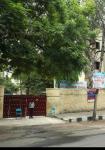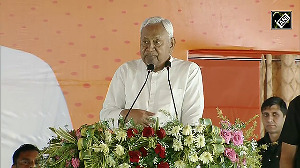A Varanasi bird seller has quoted a whopping Rs 1.20 lakh (approx $ 2,000) for a parrot that was bought for Rs 80 (approx $2) six years ago.
Bought by an egg seller in Varanasi's Lat Bhairo (Sarraiya) area, Pappu Gupta, the talkative Betu has over the years become the darling of the family.
It has also learnt the rustic Bhojpuri lingo over the years. ''The parrot talks with us in proper Bhojpuri,'' says Pappu.
One of the neighbours adds that when in anger Betu showers the choicest of Bhojpuri abuses.
"Six days ago, a Bahelia (bird seller) came to our house and offered Rs 1,000 for Betu," Pappu said, adding that he refused the offer since Betu was now family.
''The bird seller came again the next day, offering Rs 10,000 and on our refusal he tried to pressurise us. We, however, did not succumb to the pressure,'' Pappu recalls.
Since then, many a bird seller has frequented Pappu and his family. The wealthiest of them, Ajgar, on Saturday quoted a price of Rs 1.20 lakh.
''I am unable to understand why the bird sellers are quoting such high prices for my Betu. Maybe, it is due to his crystal clear voice,'' says Pappu.
His neighbour Anil, however, claims to know why.
''The guy who was ready to shell out Rs 1.20 lakh for the parrot told us that Betu was a rare Brazilian parrot.''
Pappu has also alerted the police, and the cops have assured the family that nobody will force them to sell Betu.
"He is as close to our heart as our children,'' says Pappu.
Even Betu is sure about what he wants to do with his future. He wants to stay with the family in a cage like a normal domesticated country parrot. "Hum kahiyon nahi jayib," he says (I will not go anywhere else.)
The residents of the locality now stand united with Pappu in his attempts to save his Betu from the stubborn buyers, who are likely to return once the hype subsides.
Meanwhile, the forest department appeared to be in the dark over the issue.
''A team will be sent in a day or two to investigate,'' said Alok Srivastava, Divisional Forest Officer (Kashi Range).
Stating that anything about the origin or uniqueness of the parrot will be known only after the team's visit and subsequent study.
He did not rule out the possibility of the bird being smuggled into India some years back.
''The Wildlife Act deals and protects birds and other indigenous species, but does not cover animals found in other nations, which could have resulted in a parrot being smuggled into India from Brazil or any other country and then sold out to the egg seller by unscrupulous bird sellers,'' Srivastava added.





